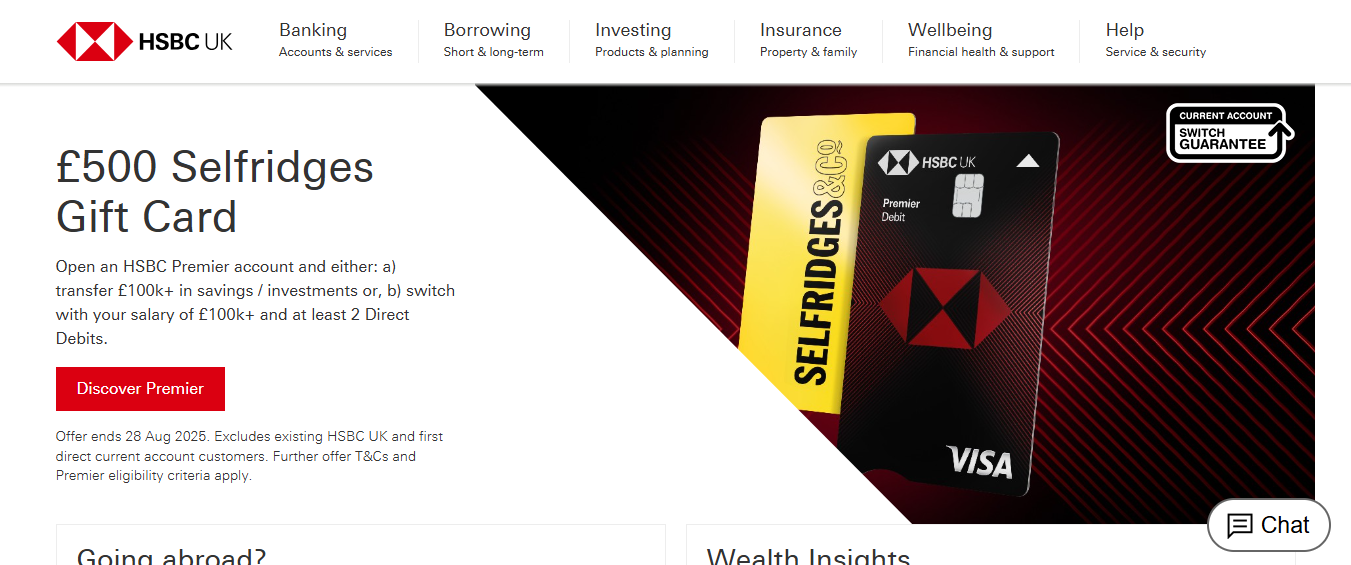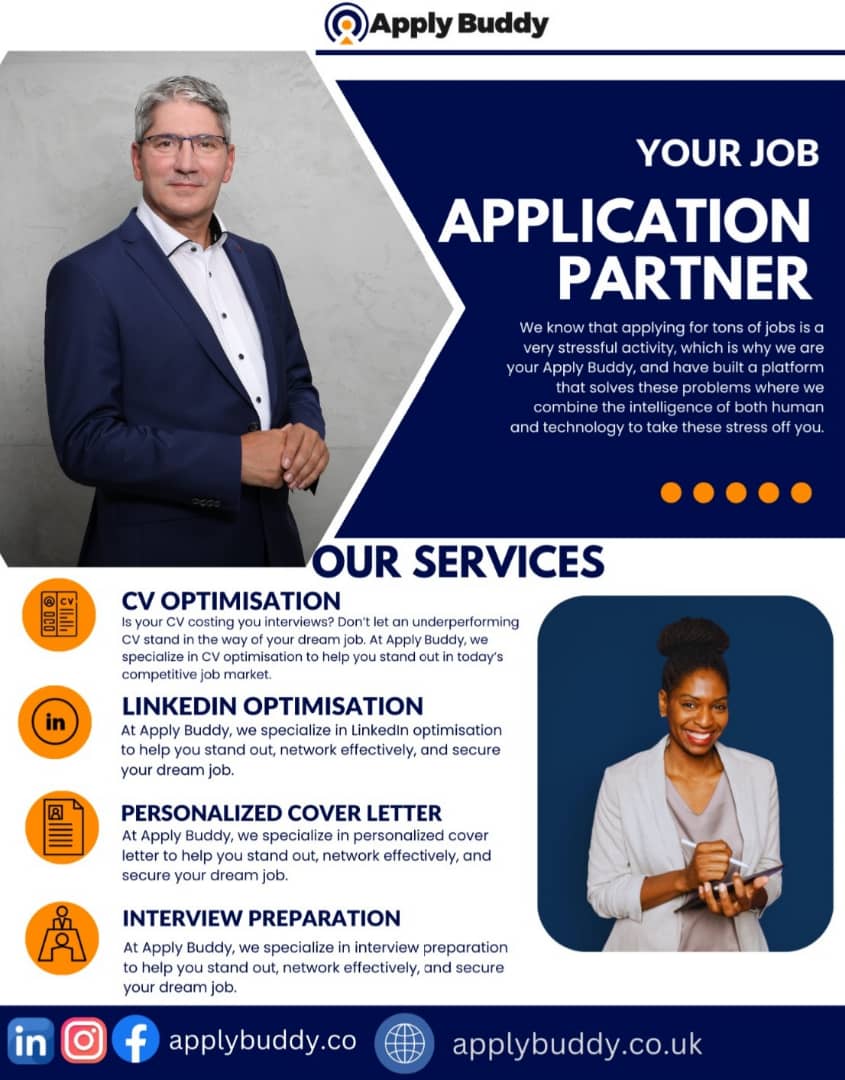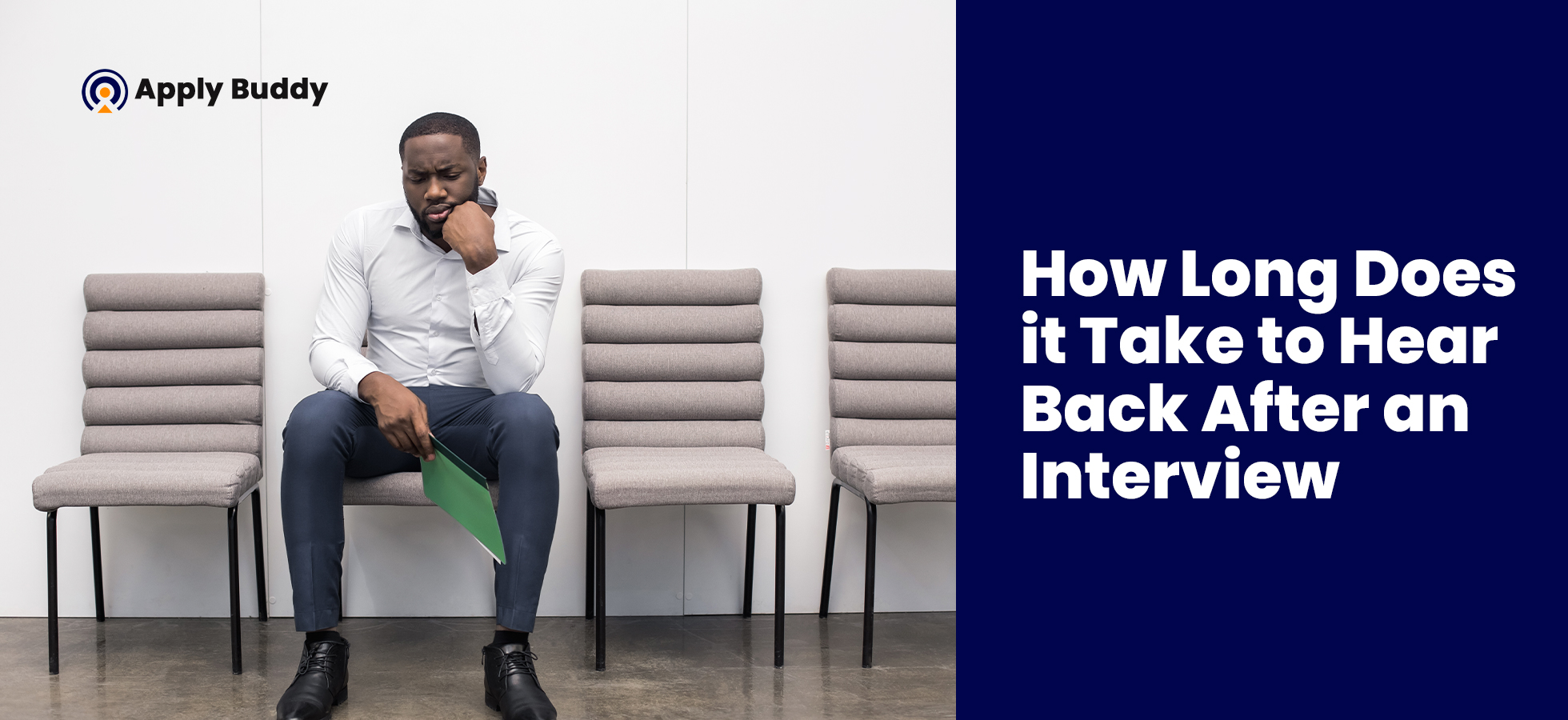You’ve just wrapped up an interview, the next question should be how long does it take to hear back after an interview? You felt confident, gave thoughtful answers, and even managed a few smiles from the panel. But now what?
How long does it take to hear back after an interview? It’s the question that haunts every hopeful candidate as they refresh their inbox for the twentieth time. You’re not alone in wondering.
In the UK and globally, interview response time can vary widely. Sometimes you’ll hear back within 24 hours. Other times, it can stretch into weeks. And that uncertainty? It’s mentally exhausting.
But stay with me.
In this guide, we’ll break down what affects the job interview process timeline, when you should follow up, how long to wait, and what you can do while you wait.
Want to know the best part?
You’ll learn how to read the subtle signs, both good and bad, that come after interviews. And yes, we’ll cover what to say in a follow-up email that gets a reply.
Typical response timelines after interviews
You may be wondering… how soon is too soon to expect feedback?
Let’s face it. The job interview process timeline is rarely one-size-fits-all. But understanding the typical wait time helps you plan smarter.
In general, the standard response time after an interview is between 1 and 2 weeks. But here’s the deal: it depends on the role, company culture, and even location.
In the UK recruitment process, many employers respond within 7 to 10 business days. However, for senior roles, it can stretch to 3 weeks or more.
But what are typical response times, exactly?
Here’s an example:
- Entry-level roles: 2–5 business days
- Mid-level roles: 5–10 business days
- Executive roles: 10–20 business days
Now, compare this with industry-specific data:
According to a study by Workable, the average time to hire in the UK is 27.5 days
Glassdoor reports that the average interview-to-offer time globally is 23.8 days
LinkedIn states that for tech roles, the hiring process can last up to 49 days
But here’s the kicker: smaller companies often move faster than big corporations. Startups and scale-ups have fewer layers of approval and tend to make quicker decisions.
Also Read:
- Does Your Job Match Your Personality?
- Preparing for Interviews Like a Pro: Tips to Land Your Dream Job
How long after an interview is a decision usually made?
Let me explain.
After the interview, HR and hiring managers typically debrief. They compare notes, assess candidates, and align feedback.
The average time to make a decision ranges from 2 weeks to 3 days. But why the delay?
Here’s something we can both agree on: Hiring isn’t always linear.
Forbes reports that 62% of hiring managers say “internal alignment” causes most delays. That’s because decisions often involve:
- Input from multiple departments
- Budget re-confirmation
- Executive approvals
- Ongoing interviews with other candidates
Or even better, sometimes, it’s about synchronising final interviews with schedules across time zones or departments.
Still waiting?
The bottom line? If you haven’t heard back within 7–10 working days, a gentle post-interview follow-up is fair game. You’ll still appear professional, and it may help move things along.
When should you follow up if you haven’t heard back?
You crushed your interview, but now… radio silence.
So, how long should you wait to follow up?
Experts recommend sending an email after the interview within 5–7 business days. This shows initiative without sounding impatient.
Here’s how you can do the same thing:
1. Wait at least 5 business days
2. Send a short, polite follow-up
3. Mention your appreciation and continued interest
4. Ask if there’s any update on the recruitment process UK timeline
Here’s an example:
Hi [Name],
Hope you’re well. I wanted to thank you again for the opportunity to interview for [Role] on [Date]. I remain excited about the position and was wondering if there are any updates on the recruitment process. Please let me know if you need anything else from my side.
What’s the big secret I’m talking about? It’s timing. Follow up too early, and it looks pushy. Too late? Missed opportunity.
According to Indeed, one in five hiring managers prefer candidates who send timely follow-ups.
Also Read:
- How to Apply for Jobs Without Experience (A Step-by-Step Guide)
- How Long Should You Prepare For an Interview?
Factors that influence the wait time
You just left a great interview, but now comes the hard part: waiting.
But what is HR feedback delay, exactly? It’s the lag between interview day and the company’s next step. And it can vary wildly.
Why?
Here’s the deal on How long does it take to hear back after an interview:
First, the number of applicants matters. A high-volume role means more resumes and interviews to review. That takes time.
Second, internal decision-making isn’t always fast. Teams must compare feedback, check budgets, and sometimes involve legal or finance. That alone can stretch timelines.
Then there are background checks and references. These add an extra 3–10 business days, especially in regulated industries like finance or education.
SHRM reports that 94% of employers run background checks during the hiring process.
Also, hiring freezes and job scope changes cause delays. Jobvite’s 2023 report shows 28% of recruiters face this challenge.
Waiting after an interview doesn’t always mean rejection. Sometimes, it’s just a slow-moving system.
Does company size affect response time?
Small companies often give faster feedback. With fewer people and simpler approval steps, decisions can take just 2–3 days.
Large corporations? They’re a different story.
Bigger teams mean longer discussions, more red tape, and slow email threads. A company like Google or HSBC could take 2–3 weeks or longer.

LinkedIn Talent Solutions says firms with 500+ employees take 41% longer to hire than smaller ones.
And if they’re hiring for multiple roles, they might wait to notify everyone at once.
So if you’re still waiting after a job interview at a large firm, don’t panic. The delay is often about process, not performance.
But how about the number of interview stages? That changes things, too.
How hiring stages (like panel interviews) affect feedback timing
Understanding this will help you answer how long does it take to hear back after an interview? Here’s something that often slows things down: multiple interview stages.
A simple one-on-one might get you results within a few days. But a panel interview? That could mean waiting over a week.
Why?
Every panellist needs time to give feedback. Then HR has to review it all, discuss it with the hiring manager, and possibly loop in higher-ups.
Let’s say your panel interview happens on Monday. Some members might not submit notes until Friday. That alone delays decisions.
And if there’s a final presentation or group task, they’ll want time to compare all candidates.
So, yes, the more steps involved, the longer it takes. But it usually means the company is being thorough, not indecisive.
Also Read:
What to do while waiting to hear back
Waiting after interview day can feel like a full-time job on its own.
You ponder on How long does it take to hear back after an interview, replay your answers, rethink every handshake, and refresh your inbox like clockwork. But here’s the deal: you don’t have to sit still.
First, stay proactive. Keep applying for other roles. It’s not disloyal, it’s smart. The job market is competitive, and timing isn’t always on your side.
According to Monster, 49% of job seekers continue applying while waiting to hear back from interviews. That’s not impatience, it’s strategic thinking.
Second, take notes. What went well? What would you improve? Doing this now sharpens your approach for your next opportunity.
Third, follow up. If it’s been 5–7 business days, send a polite email after the interview to check in. It shows professionalism without pressure.
Bottom line? Don’t pause your job search. Stay focused, active, and forward-thinking.
Now let’s talk about how to keep your mind steady during the wait.
Should you apply to other jobs while waiting?
Yes, definitely.
But why?
Because waiting too long can cost you better offers. Many people think it’s best to “wait it out,” but that often leads to missed chances.
You may be wondering if continuing to apply sends the wrong message. It doesn’t. Companies expect it.
CareerBuilder found that 66% of job seekers apply to 10 or more jobs at once.
So, don’t stop just because you had a promising interview. Keep that momentum going.
Example: If you apply to three more jobs during your wait, you increase your chances of landing at least one offer, maybe even two. That gives you leverage.
And here’s something we can both agree on: it feels better to be active than anxious.
The recruitment process UK-wide can be long. Stay ahead by continuing your search.
Also Read:
How to stay mentally prepared during the waiting period
Answering the question how long does it take to hear back after an interview? shows you how you should be prepared. Let’s face it, waiting is stressful. Especially when you’ve invested time, energy, and hope into a role you want.
But here’s how to stay sane while you wait.
First, set limits. Check your email only twice a day. Constant refreshing will drive you crazy.
Second, fill your time wisely. Update your CV, learn something new, or practice mock interviews. Doing this keeps your focus forward.
Third, remind yourself of your value. One interview doesn’t define your worth.
Harvard Business Review notes that rejection can activate the same parts of the brain as physical pain. So, take care of your mental health during the waiting phase.
Go for walks. Journal. Meditate.
The bottom line? Keep your mind healthy and your momentum steady. The wait is temporary, your growth is not.
Signs that the interview went well (or not)
So, you walked out of the room or logged off the video call. You’re wondering… did I get the job?
While there’s no crystal ball, there are subtle signs that can give you a clue about how things went.
Let’s start with the good ones.
Positive signs often include a longer-than-expected interview, detailed talk about next steps, or introductions to more team members. These usually mean the employer is interested.
According to The Muse, candidates who get introduced to future colleagues during interviews are more likely to receive offers.
Another good sign? Quick follow-up emails or positive body language from the interviewer.
But what if the vibes were off?
Red flags may include short interviews, vague responses, or the dreaded “we’ll be in touch” without clear timing.
Still, don’t jump to conclusions too quickly. Sometimes, a great interview gets delayed because of internal timelines or other candidates.
Let’s explore both the good and the bad in more detail.
Also Read:
What are positive signs after an interview?
You may be wondering what green flags to look for after an interview. Here are a few:
1. The interviewer discusses next steps in detail
2. They ask when you’re available to start
3. You’re introduced to other team members
4. They seem genuinely engaged in your answers
5. You receive a quick thank you or follow-up
For example, if a manager says, “We’ll be checking references this week,” that’s a clear sign they’re moving forward with you.
TopInterview reports that candidates who are asked about their notice period during an interview have a 70% higher chance of receiving a job offer.
Still, don’t overanalyse everything. A quiet or serious interviewer doesn’t always mean a bad outcome.
The reasons for job offer delays vary, and some great hires took weeks to get their offer.
Now let’s flip the coin. What should raise red flags?
What are the red flags that may mean rejection?
Sometimes, you walk away from an interview and just know it didn’t land.
But here’s how to read the more subtle red flags.
1. The interviewer rushes the conversation
2. There’s no talk of next steps or timelines
3. You’re told, “We have more people to meet”, without enthusiasm
4. The interviewer seems distracted or disengaged
5. They skip over your qualifications or don’t ask follow-up questions
Workopolis found that 54% of candidates knew they wouldn’t get the job based on poor interviewer interaction alone.
That doesn’t mean all hope is lost. Some companies simply aren’t good at communicating.
And sometimes, they’re just unsure themselves.
So what’s the bottom line for How long does it take to hear back after an interview?
A red flag is a warning, not a guarantee. Stay grounded and wait for official confirmation before making conclusions.
Conclusion
Waiting to hear back after an interview can feel like a mental marathon. The question of
How long does it take to hear back after an interview does not have a one answer to it.
From understanding timelines to spotting post-interview signs, it’s clear that patience, strategy, and persistence all play a role in what happens next. Remember, delays don’t always mean rejection; factors such as hiring stages, company size, and HR processes can impact response time.
While you wait, keep applying, stay prepared, and don’t lose momentum. Every interview, whether successful or not, builds your confidence and sharpens your approach.
Need help managing your job search and staying organised while you wait?
Try ApplyBuddy – a smart job tracker built to help professionals like you manage interviews, follow-ups, and applications in one easy dashboard. It takes the stress out of waiting and puts you back in control.

The job you want might be one click away. Don’t let the waiting game hold you back.
FAQs for How Long Does It Take to Hear Back After an Interview?
How long is too long to wait after an interview?
If it’s been more than 10 business days with no word and no set timeline from the employer, it may be too long.
Of course, there are exceptions. Larger companies, complex roles, or hiring delays can stretch this out.
Is it okay to follow up more than once?
Yes, but only if you space it out professionally.
The first follow-up should come 5–7 business days after the interview. If you don’t get a response, wait another full week before reaching out again.
What should I write in a follow-up email?
Keep it short, professional, and friendly.
Here’s a simple format:
Hi [Name],
Thank you again for the interview on [Date]. I enjoyed our conversation and learning more about [Company]. I’m still very interested in the [Position] and wanted to ask if there’s been any update on the process. Please let me know if you need anything from me.
Warm regards,
[Your Name]
Do companies always notify you even if you’re rejected?
Unfortunately, no.
Some employers send formal rejections. Others stay silent, especially if they’ve already chosen a candidate.

